
On 8 June 2021, China Justice Observer released the 2021 version of List of China’s Cases on Recognition of Foreign Judgments. To date, we have collected 72 cases involving China and 24 foreign States and regions. (Note: Foreign divorce judgments are excluded in the Case List.)
The key features of the updated list are:
- The List comprises 24 concise reports for each jurisdiction, together with a chart for bilateral judicial assistance treaties that China and 39 States have concluded, among which 35 bilateral treaties include the judgment enforcement clauses.
- First time the cases involving 4 jurisdictions (i.e. New Zealand, Belarus, Kenya, Myanmar) are included. Please note that there are two landmark cases where a Chinese judgment was recognized for the first time in New Zealand and a Belarusian judgment was recognized for the first time in China respectively. For a detailed discussion of these cases, see our earlier posts on the New Zealand case (Yang Chen v. Jinzhu Lin), the Belarus case (Duo Mou Ni Mou v. Duo Mou Mie Mou), the Kenya case (Liu Chongliang v. Webwave Electric Manufacturing Co. Ltd. (Kenya) et al.), and the Myanmar case (Tan Junping et al v. Liu Zuosheng et al.).
- 10 cases involving the existing six jurisdictions, namely, South Korea (three cases), the U.S. (two cases), Japan (two cases), Singapore (one case), UAE (one case), and Poland (one case), are added. Please note that the case of Pektor Art Co., Ltd. in 2020, being the second South Korean judgment recognized in China, and the case of LEE WON JUNE in 2019, being the second Chinese judgment recognized in South Korea, send positive signals that after China took the first step in the Qingdao Case, a “follow-suit” circle is formed in practice between China and South Korea.
- Each case has been reviewed, and more details, such as the case numbers, causes of action and case analysis, are added. Please note that we have updated the cause of action and posted an analysis for two cases involving Uzbekistan, where China refuses to enforce Uzbekistan judgments twice, due to improper service of process.
We would like to thank the following persons/institutions that shared thoughts and valuable information with us:
- Dr. Béligh Elbalti, Associate Professor, Graduate School of Law and Politics, Osaka University, Japan
- Dr. ZHANG Wenliang (张文亮), Associate Professor, School of Law, Renmin University of China
- Dr. SU Xiaoling(苏晓凌), lawyer at Beijing DHH Law Firm
- Mr. WANG Chengjie (王成杰), lawyer at Allbright Law Offices (Shanghai)
- Wonbanglaw (万邦法律)
As always, we endeavor to collect all Chinese court decisions involving the recognition and enforcement of foreign judgments (“REFJ”), and foreign counterparts concerning the recognition and enforcement of Chinese judgments. The Case List is made available for our readers to build reasonable expectations on REFJ in China.
The Case List is continually updated with new reports. Case information, comments, and suggestions are most welcome. Please feel free to contact Ms. Meng YU via e-mail at meng.yu@chinajusticeobserver.com .
For an overview of the disposition of cases on REFJ, please see the three tables below.

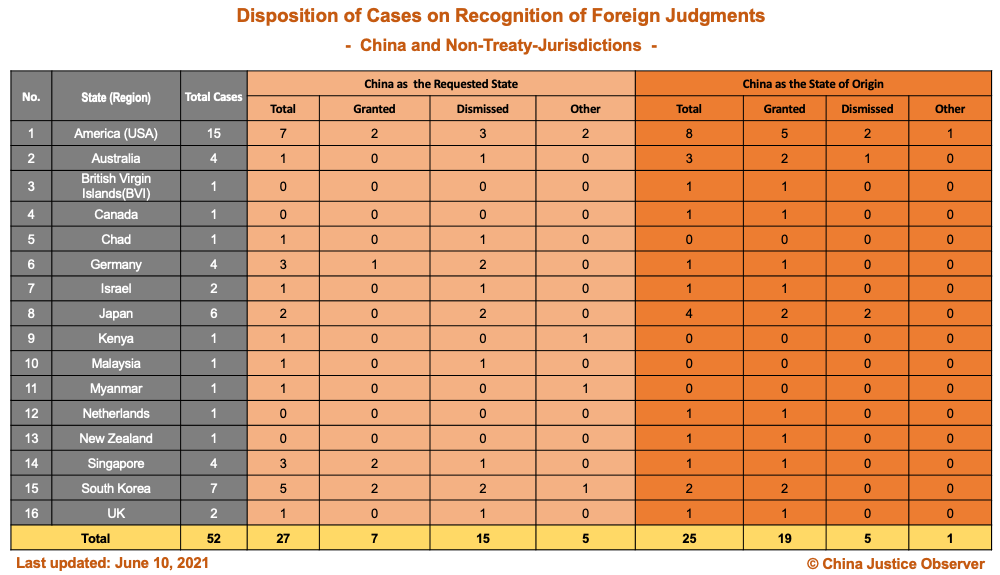
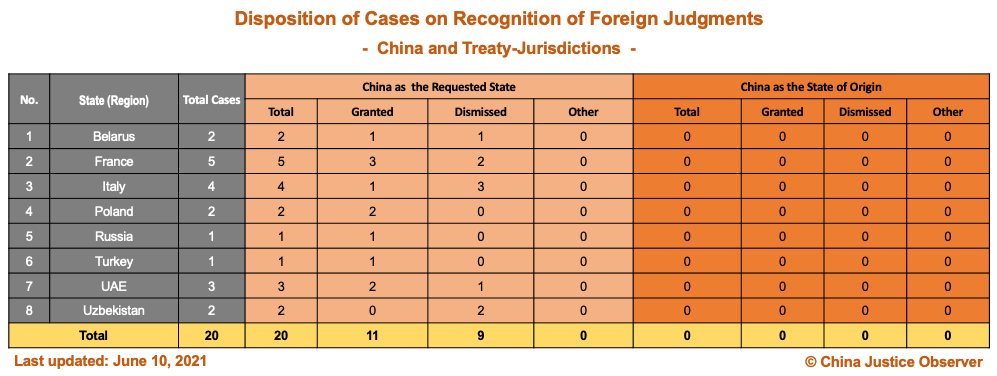
For information about bilateral judicial assistance treaties that China and 39 States have concluded, please see the table below.
(For the List of China's Bilateral Treaties on Judicial Assistance in Civil and Commercial Matters (Enforcement of Foreign Judgments Included), please click here. Authoritative texts in Chinese and other languages are now available.)
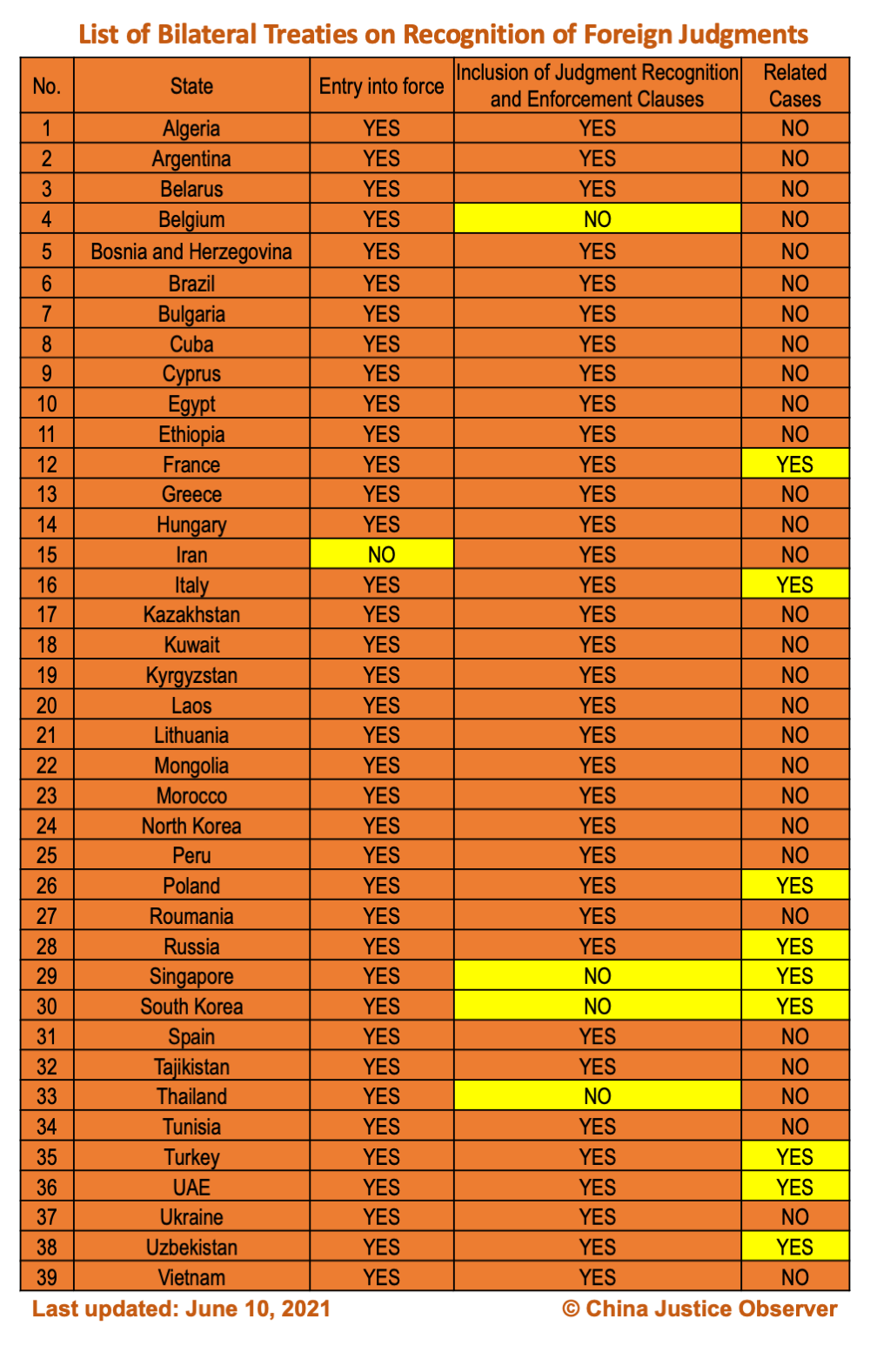
For the detailed country(region) report about cases on REFJ, please see the following charts.
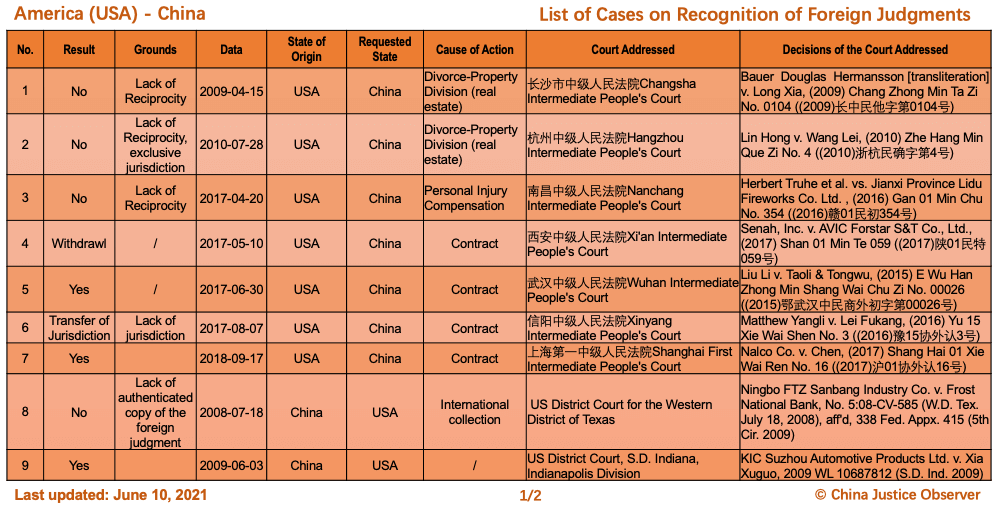
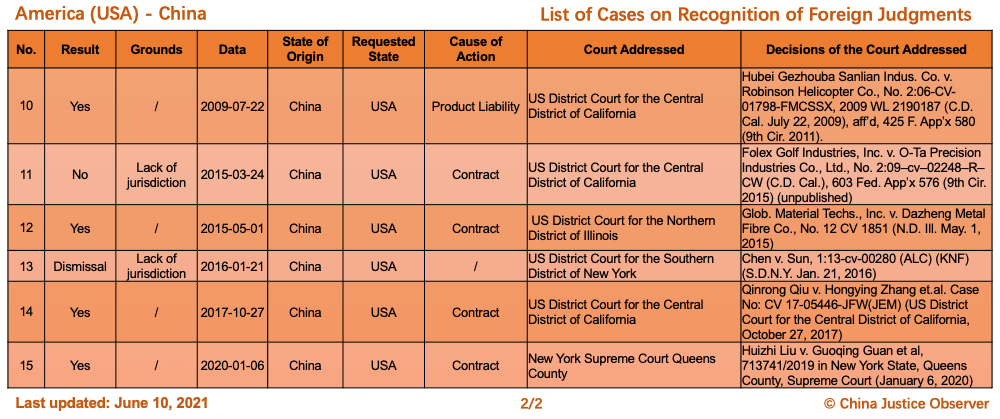





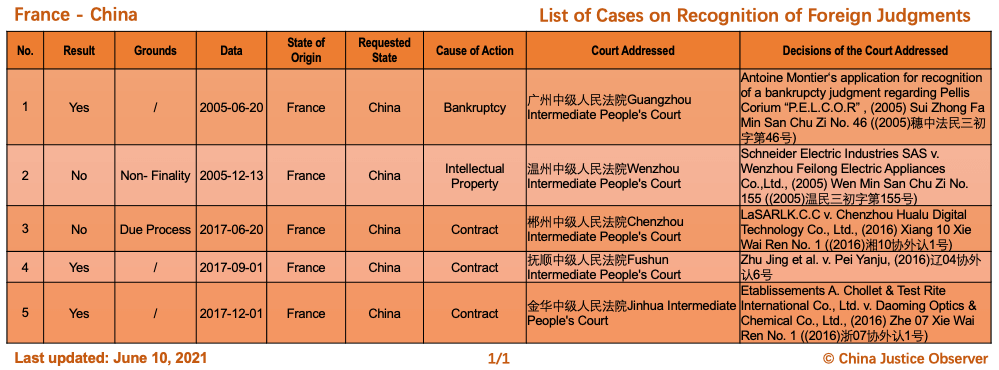
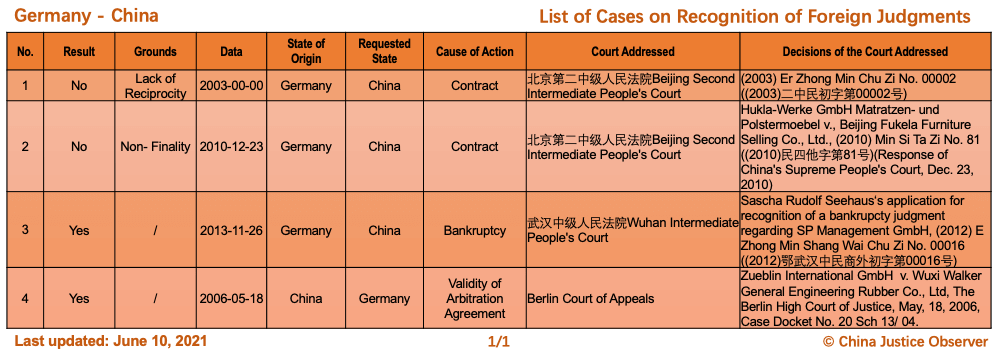


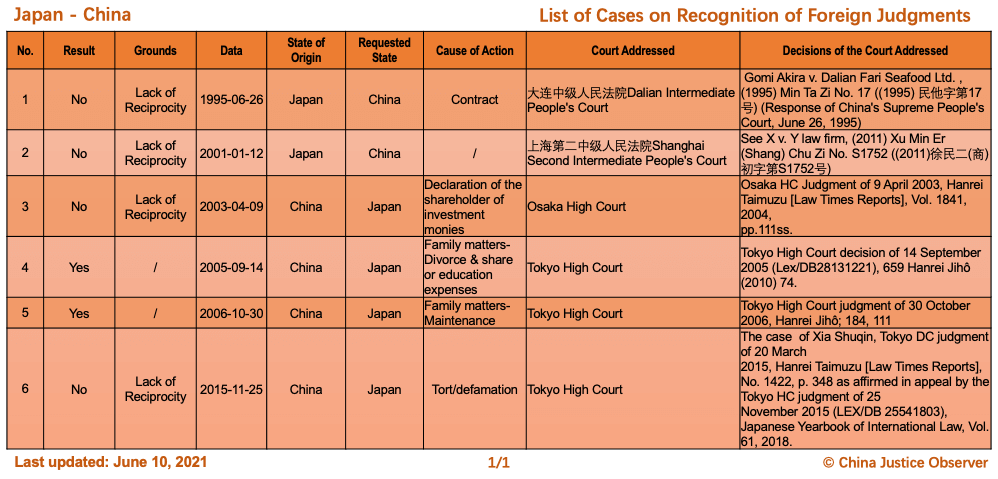








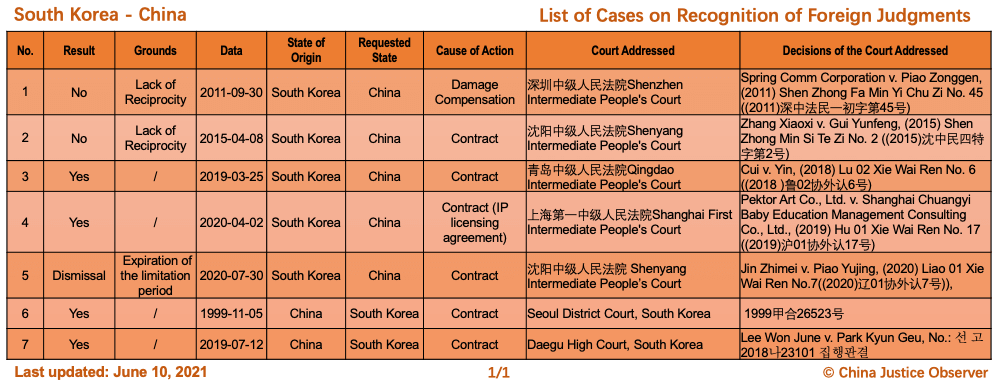




Contributors: Guodong Du 杜国栋 , Meng Yu 余萌





